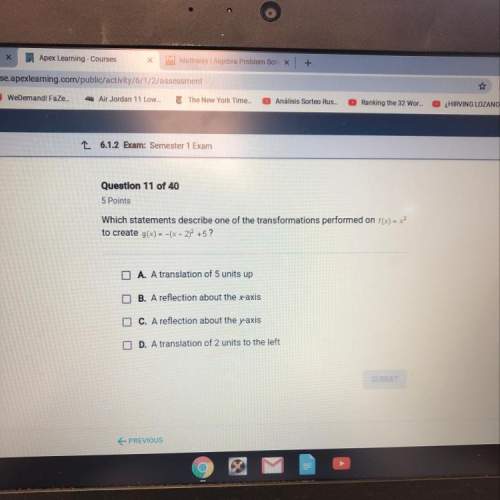Premise 1: The defendant has no alibi for the night of the theft.
Premise 2: The stolen goods...

Mathematics, 26.04.2020 05:18 anher
Premise 1: The defendant has no alibi for the night of the theft.
Premise 2: The stolen goods were found in the defendant's possession.
Premise 3: Two witnesses have identified the defendant as the thief.
Conclusion: The defendant is guilty of theft.
Decide whether the above argument is inductive or deductive.
tive.
Select an answer
If the above argument is inductive, decide if it is strong or weak. Select not applicable if the
argument is deductive.
Select an answer

Answers: 1


Other questions on the subject: Mathematics

Mathematics, 21.06.2019 16:30, brennanjb00
Jorge planted flowers in his garden he planted one row of 12 tulips and one row of 36 daisies george's friend kylie has a garden with 75 flowers in it kylie's garden only contains tulips and daisies. is it possible for kylie‘s garden she have the same ratio of tulips to daisies as george's garden?
Answers: 1

Mathematics, 21.06.2019 20:50, peachijmin
These tables represent a quadratic function with a vertex at (0, -1). what is the average rate of change for the interval from x = 9 to x = 10?
Answers: 2


Mathematics, 22.06.2019 02:00, joejoefofana
The trapezoid is composed of a rectangle and two triangles. what is the area of the rectangle? what is the total area of the triangles? what is the area of the trapezoid? a) 48 cm2; 32 cm2; 80 cm 2 b) 48 cm2; 16 cm2; 64 cm 2 c) 128 cm2; 32 cm2; 160 cm 2 d) 128 cm2; 16 cm2; 144 cm 2
Answers: 1
You know the right answer?
Questions in other subjects:

Health, 09.09.2021 14:00


Chemistry, 09.09.2021 14:00



English, 09.09.2021 14:00



Chemistry, 09.09.2021 14:00

History, 09.09.2021 14:00




